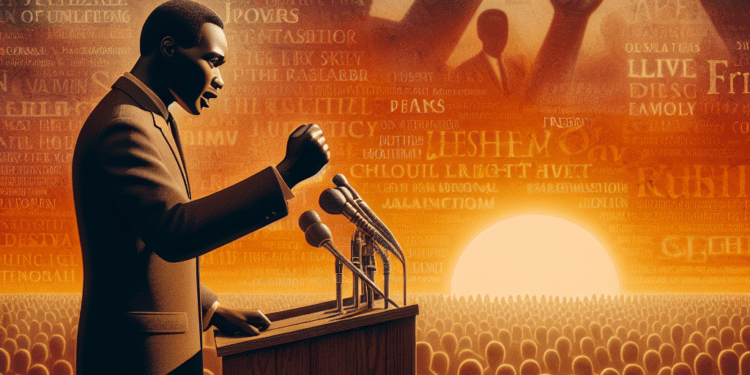Martin Luther King Jr. is one of the most iconic figures in the fight for civil rights in the United States. His leadership and activism played a crucial role in bringing about significant changes in American society and legislation. King’s commitment to nonviolent protest and his powerful speeches inspired millions of people to join the civil rights movement and demand equality for all Americans.
King was born on January 15, 1929, in Atlanta, Georgia. He grew up in a segregated society where African Americans faced discrimination and overt racism on a daily basis. King’s experiences growing up in the South shaped his understanding of the injustices faced by black Americans and set him on a path of fighting for civil rights.
In 1955, King became involved in the Montgomery Bus Boycott, a protest against racial segregation on public buses. The boycott was sparked by the arrest of Rosa Parks, an African American woman who refused to give up her seat to a white passenger. King’s leadership during the boycott earned him national recognition and established him as a prominent civil rights leader.
Throughout the 1950s and 1960s, King led numerous protests, marches, and demonstrations in support of civil rights. He was a key figure in the organization of the March on Washington for Jobs and Freedom in 1963, where he delivered his famous “I Have a Dream” speech. The march brought together over 250,000 people and was a watershed moment in the civil rights movement.
One of King’s most significant achievements was the passage of the Civil Rights Act of 1964 and the Voting Rights Act of 1965. These landmark pieces of legislation prohibited discrimination based on race, color, religion, sex, or national origin and eliminated barriers to voting for African Americans. King’s work paved the way for greater equality and justice for all Americans.
Despite facing opposition, violence, and threats to his life, King remained committed to his principles of nonviolence and equality. His assassination on April 4, 1968, was a tragic loss for the civil rights movement and for the nation as a whole. However, King’s legacy lives on in the continued fight for civil rights and social justice.
In recognition of his contributions to the civil rights movement, King was posthumously awarded the Nobel Peace Prize in 1964. His birthday is now celebrated as a national holiday in the United States, and his words and actions continue to inspire people around the world to work towards a more just and equitable society.
Martin Luther King Jr.’s fight for civil rights was a defining moment in American history. His courage, leadership, and dedication to the principles of equality and justice have left a lasting impact on the nation and continue to inspire generations of activists and advocates for social change.







 #billionairesdaughter
#billionairesdaughter




